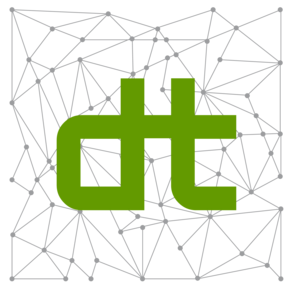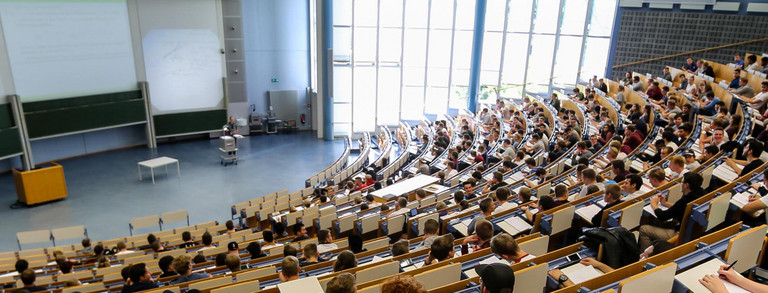Research Methods in Information Systems
| Instructors: | Frederik Ahlemann, Universität Duisburg-Essen Simon Hensellek, Technische Universität Dortmund Christian Janiesch, Technische Universität Dortmund Christian Meske, Ruhr Universität Bochum Mario Nadj, Technische Universität Dortmund Jens Pöppelbuß, Ruhr Universität Bochum Hannes Rothe, Universität Duisburg-Essen Reinhard Schütte, Universität Duisburg-Essen Manuel Wiesche, Technische Universität Dortmund |
| Location: | at UDE/RUB/TUDO (see below for each course room) |
| Audience: | UA Ruhr PhD students in the first year of their PhD who are interested in conducting research in the Information Systems (Wirtschaftsinformatik) discipline. |
| Course Language: | English |
| Registration: | Please apply by sending a one-page summary of your profile (background, experience with research methods, broad research area, specific interests) until 15.08.2023 to dt.wiwitu-dortmundde |
| Learning objectives: | This course seeks to provide PhD students in Information Systems (Wirtschaftsinformatik) with the fundamental knowledge for conducting own research. Students will develop an understanding about ways of contributing to the academic community. They will gain an overview of the breadth of research methods available in Information Systems research, ranging from design science approaches to qualitative and quantitative empirical studies. |
| Content / Dates (Times might be subject to change and will be finalized around four weeks before the session. Please plan for session times between 9 am and 5 pm.) |
|
Course content
Introduction to IS research (Christian Meske, RUB), Wasserstr. 221, 44799 Bochum
This introductory session will kick off the course by discussing the fundamentals of science and provide an overview of research and research methods in our field. It will cover an initial understanding of science and how a research discipline creates scientific progress. It will provide an overview of the information systems field and discuss which forms of scientific knowledge exist in the discipline. It will further provide an overview of the publication process and a short introduction into reviewing. This session will end with an outline of IS research methods, which will be covered in the following sessions in detail.
Qualitative Research (Manuel Wiesche, TUDO), location: TU Dortmund, P2-05-416
Participants will develop an understanding of qualitative exploratory research methods including case studies and grounded theory methodology. They will understand when such methods should be applied and which critical decisions and which challenges arise. Students will learn how the methods can be applied to research projects in the Information Systems (IS) field. Participants will further understand the espoused goal of theory development for novel phenomena but also other contexts in which qualitative-exploratory approaches can be helpful. Participants learn about the key methodological procedures and how they are applied in the IS context. Cumulatively, this session seeks to provide participants with a thorough understanding of qualitative-exploratory research methods to navigate the existing procedural heterogeneity and variance in types of qualitative methods in IS research.
Data- and Network Analysis (Hannes Rothe, UDE), location: Place Beyond Bytes, Duisburg
We will introduce participants to explanatory and exploratory quantitative research methods with a focus on network analysis. They will learn about research procedures for quantitative data analysis, ranging from data understanding & preparation, visualization, analysis, to evaluation. The tutorial includes practical application along these steps. For that purpose, we engage with different sources of web-based data, discuss alternative data sourcing strategies, and ways of producing analysis pipelines. In a deeper dive, participants learn methods of network analysis on micro-, meso- and macro-level for which the workshop introduces some general concepts and mechanisms of network theory.
Structural Equation Modeling (Frederik Ahlemann, UDE), location: tbd
Participants will be introduced to the general approach of structural equation modeling (SEM) and how it links to theory testing. Participants will learn the basic elements of a structural equation models and alternative approaches to measurement (reflective versus formative). They will get insights into the basic steps of model development, testing and interpretation of results. The course will explore fundamental quality criteria for structural and measurement models and show how they are examined in order to test models based on empirical data. The course will also cover different approaches to model validation (component based versus covariance-based). In the second half of the course, students will have the opportunity to apply what they have learned using SmartPLS and a small demo dataset.
Designing Experimental Studies (Mario Nadj, TUDO), location: TU Dortmund, SRG 1.023
Experiments are a well-suited method for empirically investigating cause-and-effect relationships. The course on Designing Experimental Studies focuses on key decisions in designing and conducting experiments. Participants will gain clear insight into the usefulness of experiments, the basics of experimental design, and “best practices” for conducting experiments, including a discussion on the effect of subject pool and incentives. The goal is to develop an understanding of the logic behind an experiment as well as provide ideas and practical advice for conducting experiments. The course is offered in an interactive manner and includes examples from current research to enhance both conceptual knowledge and practical application of experimental research.
Qualitative Comparative Analysis (Simon Hensellek, TUDO), TU Dortmund, SRG 3.031
Participants will be introduced to the methodological approach of qualitative comparative analyses (QCA) with a focus on fuzzy-set qualitative comparative analysis (fsQCA), necessary condition analysis (NCA), and bottleneck analysis. They will learn how QCA can complement other qualitative and quantitative methods to deliver further, deep-level insights into empirical data. The usefulness for IS research will be demonstrated and discussed using sample papers published in leading academic journals. Reviewing these papers will also provide participants with knowledge of how QCA can be applied to specific research designs or questions and how to interpret the results. In the second part of the course, participants will have the opportunity to try out the method themselves on a sample data set. After this course, participants will understand when and how to apply QCA to answer their research questions.
Design Science Research (Jens Pöppelbuß, RUB), ZESS Bochum
Participants will develop an understanding of design science research as one of the main research paradigms in Information Systems with a long tradition, especially in Germany. They will discuss how this research paradigm is different to behavioral research, but also how it can be reasonably integrated with it or at least complement it. Design science research intends to create new and innovative artifacts, including constructs, models, methods, and instantiations (e.g., software and hardware). Participants will learn about these different types of artifacts and discuss under what circumstances these can be considered valuable knowledge contributions to academia (knowledge contribution types and contribution framework; Gregor & Hevner 2013). They will also be introduced into widely accepted process models and guidelines for conducting design science research (Hevner et al. 2004, Peffers et al. 2008). The importance of and different approaches to artifact evaluation will be discussed. Further, the concepts of design theory and design principles will be introduced. They refer to growing attempts to abstract from specific artifact design projects towards generalizable design knowledge. Finally, a publication schema for design science studies (Gregor & Hevner 2013) as well as the anatomy for design theories (Gregor and Jones 2007) will be presented to guide the write-up process of design science research projects.
Reviewing Literature for Theory Development (Christian Janiesch, TUDO), RCTDSS, Raum 303
This session aims to highlight the critical role literature reviews play in scholarly research and theory formulation. It offers an opportunity for PhD candidates to engage with the complexities of synthesizing and integrating academic literature for the advancement of theoretical frameworks. During this seminar, participants will be exposed to various strategies, methodologies, and tools essential for systematically reviewing literature, analyzing existing theories, identifying gaps, and developing cogent theoretical frameworks. It will highlight and discuss different contemporary literature scoping and review as well as literature processing and analysis methods relevant to the IS domain. This baseline comprises the methods of vom Brocke et al. (2015) and Boell & Cecez-Kecmanovic (2014) as well as Nickerson et al. (2013). Further guidance will be given on the topic of meta synthesis, archetype development, and the editorial requirements when submitting to review journals such as ACM CSUR and IJMR.
Introduction to the Philosophy of Science for Business Information Scientists (Reinhard Schütte, UDE), location: tbd
The philosophy of science is commonly classified as a sub-discipline of philosophy and deals with the conditions and assumptions under which scientific knowledge arises and endures. Thus, the philosophy of science forms the basis of every single science. The course will outline the basic issues of philosophy of science, ontology, epistemology, and methodology, and demonstrate the importance of positioning at the meta-level in order for statements to hold at the object-level. Some research areas of business informatics are problematized in terms of their basic positioning, and the options for young scholars of business informatics to find solutions in the thicket of philosophy of science are shown. This session will be taught in German.
Following this session, instructors will join a panel discussion on information systems. Details to follow soon.


